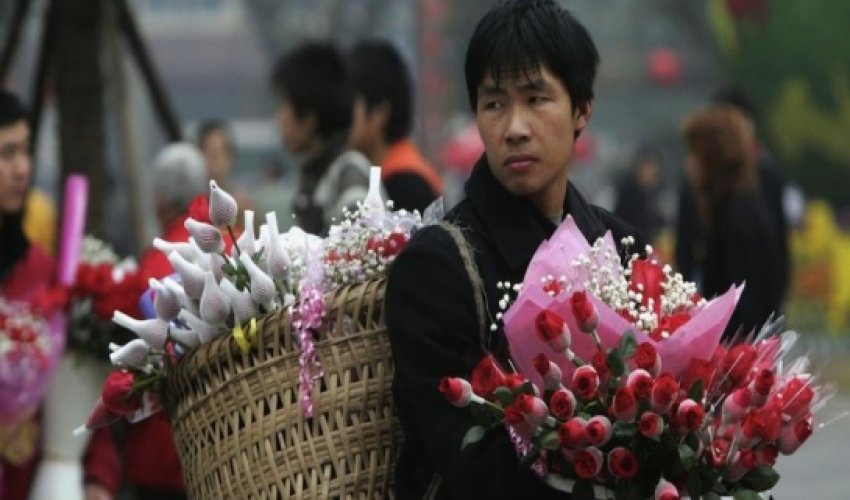Of Roses and Rice Balls

The clash of the thoroughly traditional, family-focused Lantern Festival with a private, commercial, and increasingly popular Western holiday sparked a conflict of allegiance among many young Chinese this year. The contrast between the two holidays garnered widespread attention on Weibo, where the hashtag #lanternfestivalvalentinesday# generated 69 million posts. One popular comment compared the dilemma to an age-old Chinese rivalry between filial piety and love: "It's the same as asking the question: If your mom and your wife are both drowning, who would you save first?"The now-concluded Lantern Festival, where families light red lanterns and, traditionally, allow children to carry them to the temple at night, was celebrated as far back as 104 B.C. In its modern day incarnation, relatives gather to eat sweet glutinous rice balls; the roundness of the dough symbolizes the wholeness of the family. By contrast, the Chinese celebrate the imported holiday of Valentine's Day similar to the way the Americans do: with roses, dates, or spite. This year it appears that tradition -- or parental pressure -- won: Many Chinese say they chose piety, or at least claimed to have done so. On a Weibo forum called "Glutinous Rice Balls versus Roses," 94 percent of the more than 5,000 netizens who voted chose rice balls. But not all made the choice willingly. In a similar poll on social networking site Renren, one member wrote that he wanted to choose to celebrate Valentine's Day. "But I've been told I'm not allowed," presumably by his parents, "so there is not much I can do except stay at home having glutinous rice balls with mom and dad."Historians of Chinese folklore insist that the Lantern Festival is not entirely without romance. Wang Yumin, who works at an observatory in Beijing, told local newspaper Beijing Evening News that in ancient China, when young women did not usually leave the house, the occasion provided a rare chance for young lovers to see each other in public and exchange wishes -- what modern Chinese might recognize as a date. Nor do Valentine's Day celebrations necessarily represent a wholesale abandonment of Chinese culture. In the run-up to the holiday, amorous web users posted shorter, or wei ("micro"), versions of old-fashioned love letters composed in classical Chinese style. Many added digital flare by attaching selfies to the poems -- proving, at the same time, the durability and fragility of Chinese tradition.(foreignpolicy.com)ANN.Az
Latest news 
More news 



































 Photo
Photo 



 Video
Video 

